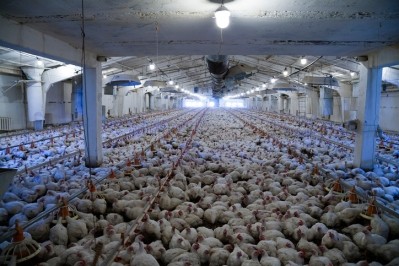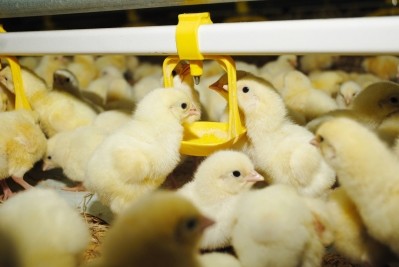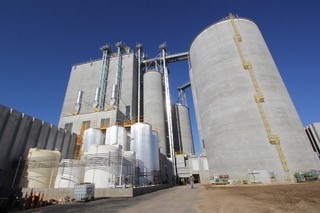Poultry production costs rocket
making a substantial price increase in poultry meat inevitable,
warned the British Poultry Council (BPC) this week. Widespread
drought in the UK and across cereal producing areas of the world
has cut harvests, particularly of feed wheat, and cereal prices
have leapt as a result.
UK feed wheat, which makes up almost two thirds of poultry diets, has doubled in price in the last 12 months.
Forward contracts initially shielded producers from the increases, but those contracts are now ending and the poultry industry is facing a 30 per cent hike in feed bills, with more increases looming over the coming months before the next harvest is due in July/August. Other feed ingredient prices have also increased on the back of increased world demand and supply shortages.
Feed is the single biggest input in the production of poultry meat, accounting for around 40 per cent of an oven-ready bird.
"Overall we estimate that right now the poultry industry is facing a massive £190 million increase in its feed bill alone," said BPC chief executive Peter Bradnock. "It is quite simply a cost too far. Companies have been absorbing a whole range of inflationary costs over the years, but this increase cannot be met through even greater efficiencies on the part of farmers or processors."
Nor is any intervention likely by the government or the European Commission to reverse the climb in cereals costs. Poultry producers have no option but to pass them on in higher poultry meat prices, necessitating an immediate increase of 15 to 20 per cent, around 6 pence per kilogramme.
"The increase is unavoidable and we are confident that our customers and consumers will recognise this and view it as fair and reasonable for quality British poultry meat," said Bradnock.
According to the National Association of British and Irish Millers (NABIM), EU wheat markets, including the UK, have been driven progressively higher by the impact of the drought. This has reduced supply of grain by at least 10 per cent and increased demand for animal feed since alternative feed materials have been destroyed following the BSE crisis.
This price increase has occurred despite the Commission's decision on 31 July 2003 to suspend its wheat export programme, aware that the volume available for export may be lower than 5 million tones instead of the usual 14-15 million tonnes and that almost 2 million tonnes had been sold by the end of July.







